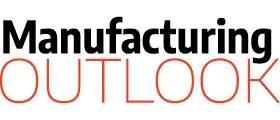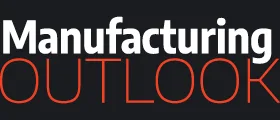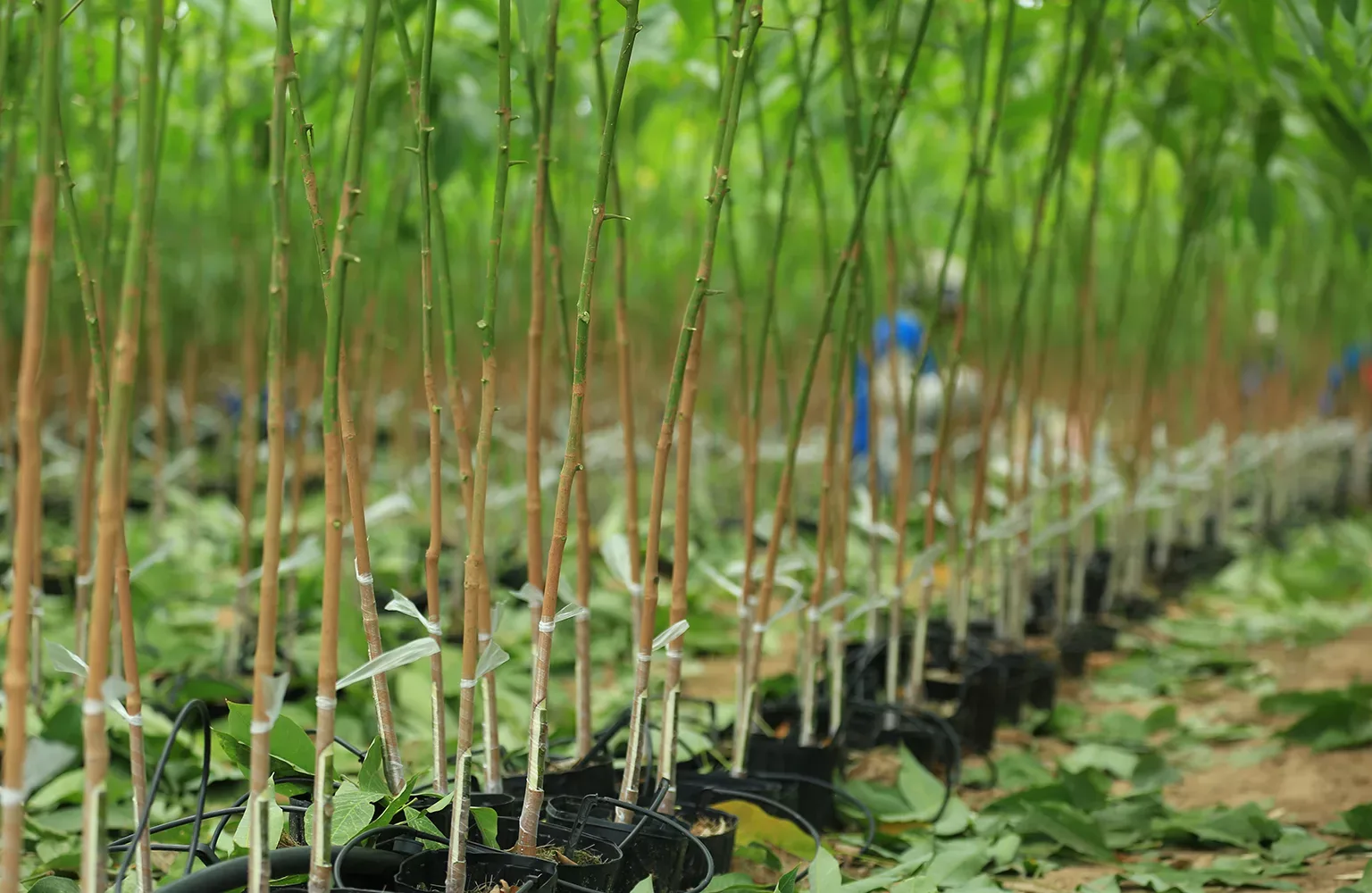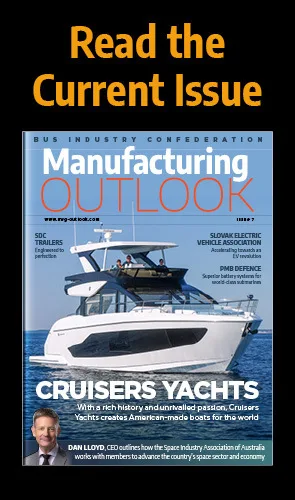Going beyond merely producing high-quality natural rubber, SIPH proactively promotes the sustainable production of this crucial commodity across West Africa for the benefit of its smallholders and the future of the industry. General Director, Marc Genot, reflects on the company’s progress over the past year.
ROOTED IN PEOPLE AND PLANET
Having faced various obstacles over the years, from sustainability concerns to fluctuating consumer demand, the global rubber manufacturing field continues to demonstrate its resilience.
Largely supported by industrial activity in China, today the industry thrives – despite experiencing relatively low Singapore Commodity Exchange (SICOM) prices in 2023.
In Africa, Côte d’Ivoire is by far the continent’s largest rubber market, with a total output of almost 1.7 million tonnes (t) in 2023 alone, making it the world’s third-largest producer of the material.
As the country’s natural rubber processing capacity continues to grow, we re-visit leading rubber manufacturing company, SIPH.
A market frontrunner in Côte d’Ivoire, Ghana, and Nigeria, and with some operations in Liberia, the company operates 60,000 hectares (ha) of rubber plantations, employs over 11,000 staff, and processes over 400 kilotonnes of natural rubber across its 10 factories per year.
Collaborating daily with over 30,000 farmers, SIPH deeply understands the needs of smallholders due to its hands-on involvement in cultivating its own rubber plantations, from which it acquires a portion of its product.
“We participate in various capacity-building programmes using our knowledge of rubber tree cultivation on our plantations to improve our smallholders’ agricultural and sustainability practices,” opens Marc Genot, General Director.
Supporting first-class tyre manufacturers across Europe, North America, and Asia, the company’s commitment to sustainability, alongside its comprehensive range of products, continues to set it apart from the competition.
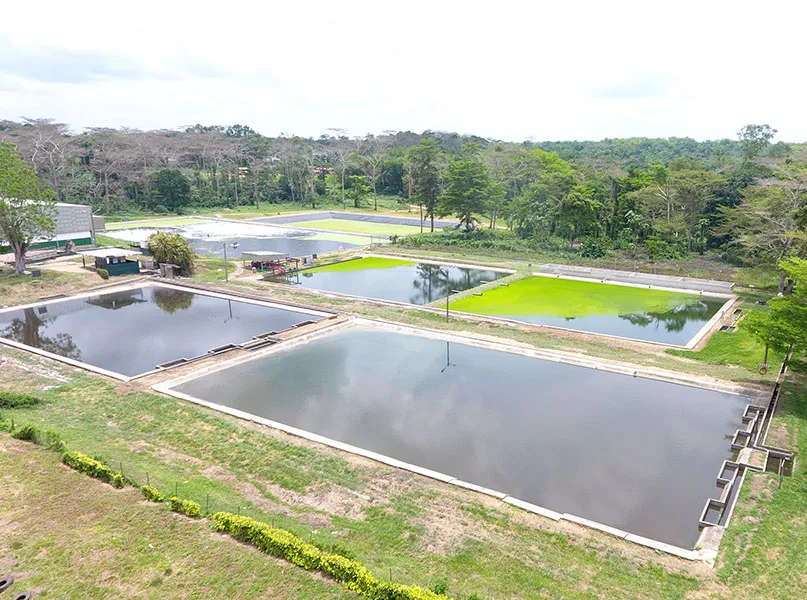
A COMPLIANT OPERATION
Headquartered in France, SIPH is acutely aware not only of African but European law regarding the regulation of its products. As such, it seeks to implement the European Union Deforestation Regulation (EUDR) broadly across the company.
To become 100 percent compliant with EUDR and verify its rubber production process in accordance with its guidelines, SIPH has taken steps to establish a completely transparent supply chain, from farm to container.
A traceability standard developed in collaboration with the Socfin Group, a holding company with direct interest in African rubber plantation operations, has allowed SIPH to localise its supplier’s plantations. This, alongside applicable legal studies, has verified its deforestation status and sustainable production potential.
“As a result of the traceability legislation, our farmers were asked to confirm their commitment to all basic sustainability principles such as deforestation, human rights, legality, and respect of their personnel,” Genot discloses.
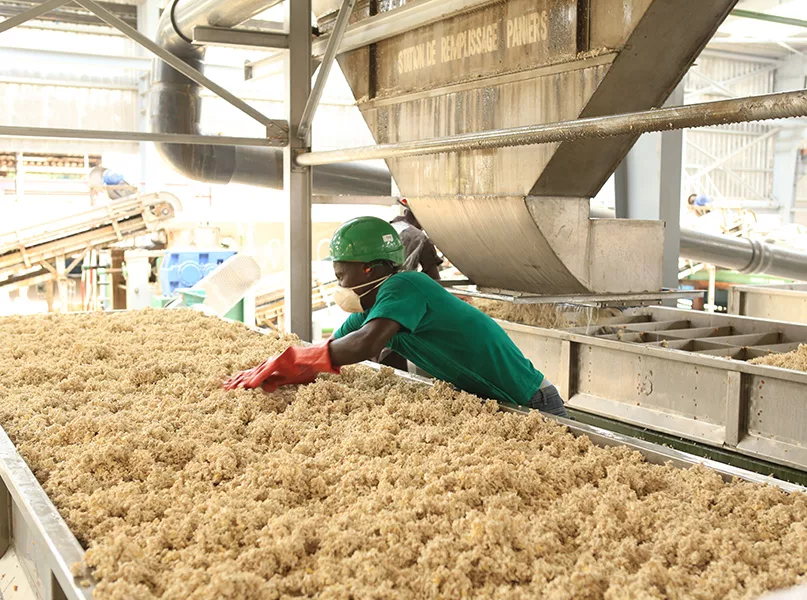
SIPH is also producing a legality questionnaire through which it can identify practices which could be improved amongst its farmers that are not yet compliant with EUDR.
“In this case, a formal due diligence document is underway, which will be third-party verified in due course.”
Evidently, 100 percent of its supply is set to be EUDR compliant in Nigeria and Liberia by the close of 2022, and 80 percent in Ghana and Côte d’Ivoire, with targets in place to increase this percentage to 100 percent before 2030. As such, the company is ready to guarantee the majority of its products are compliant.
However, despite SIPH’s recent and ongoing efforts to align its practices with the eagerly anticipated EUDR policies, the European Commission has made a recent decision to delay its flagship anti-deforestation law by up to 12 months.
“It’s most unfortunate that the EU has postponed the law – unfortunate for the planet, and for us and the smallholders as we’ve invested heavily in our traceability but for no immediate benefit,” reflects Genot.
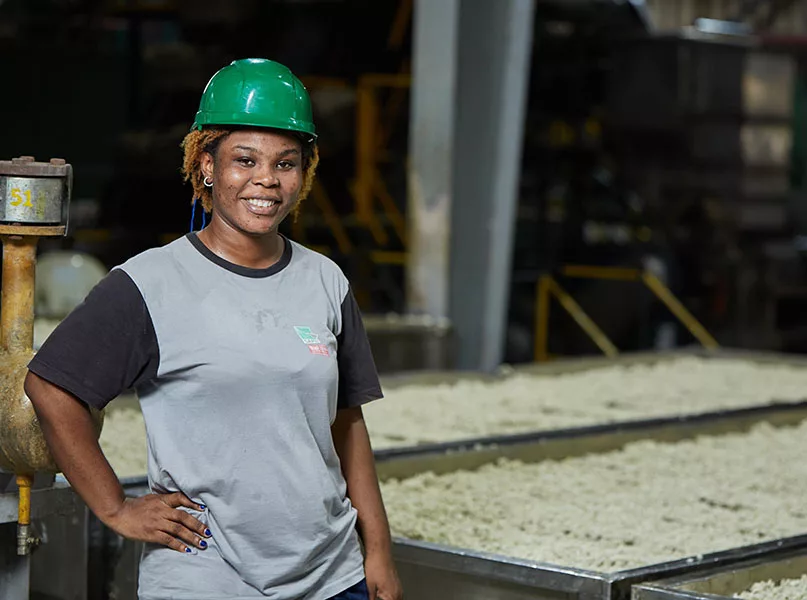
PEOPLE, PLANET, PROFIT
In addition to its EUDR actions and initiatives, SIPH continues to provide extension services to 80,000 farmers across the four countries it serves.
“We will focus on the deployment of the best agricultural practices, with a particular shift towards low frequency tapping systems and planting new tree varieties that can be adapted to the climactic conditions anticipated in coming decades,” Genot reveals.
Furthermore, the company remains active at the Global Platform for Sustainable Natural Rubber (GPSNR), whose mission it is to lead improvements in the socioeconomic and environmental performance of the natural rubber value chain.
SIPH’s integration of sustainability reflects this, witnessed in its work towards an EcoVadis rating, which provides in-depth analysis of sustainability performance, and SPOTT ranking, which transparently assesses sector-specific environmental, social, and governance (ESG) risk in the natural rubber, forestry, and palm oil industries.
“As Bertrand Vignes, my predecessor, put it – we are not increasing our sustainability because GPSNR is asking for it, we are doing it because sustainability is in our DNA,” he prides.
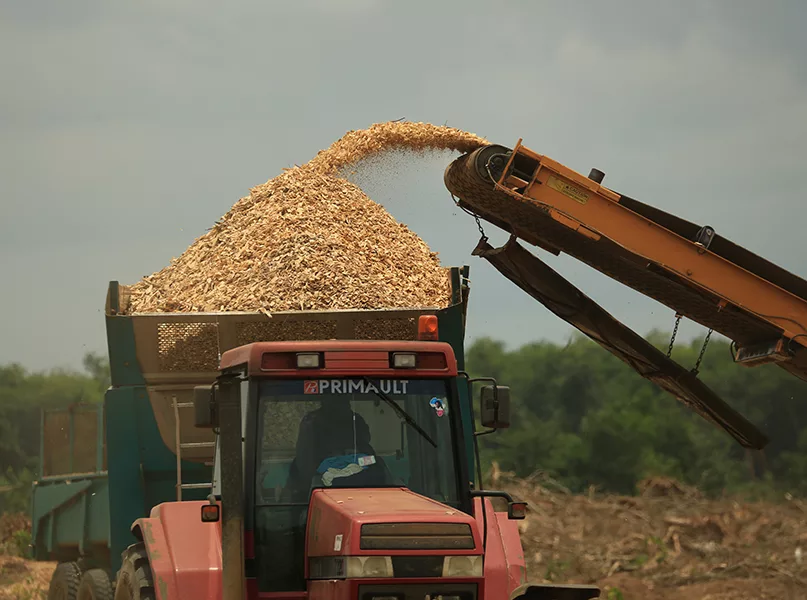
As such, the company is currently working on two developments that will help it to focus on sustainability as a priority.
Firstly, GPSNR is finalising its assurance model that will require members to conduct third-party verified due diligence on their practices by 2027 at the latest.
“We wish to start verification as early as possible, as this requirement will put a lot of pressure on members’ risk mitigation. Our experience in implementing due diligence across our EUDR activities will no doubt help us,” Genot asserts.
Secondly, the company’s headquarters location in France means it must apply corporate sustainability reporting directive (CSRD) regulations from 2025 to inform its 2026 sustainability report, publishable in early 2026.
In short, SIPH’s sustainability report will need to be as strongly documented as its financial reports to meet CSRD requirements – something that the business has no qualms delivering due to its inherent, deeply-embedded environmental approach.
“CSRD is an opportunity for us to concentrate our efforts on the most important actions for our people, planet, and profit vision,” Genot sets out.
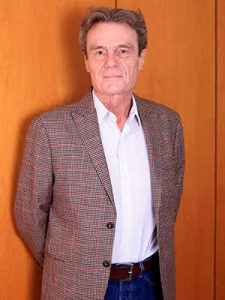
“CSRD is an opportunity for us to concentrate our efforts on the most important actions for our people, planet, and profit vision”
Marc Genot, General Director, SIPH
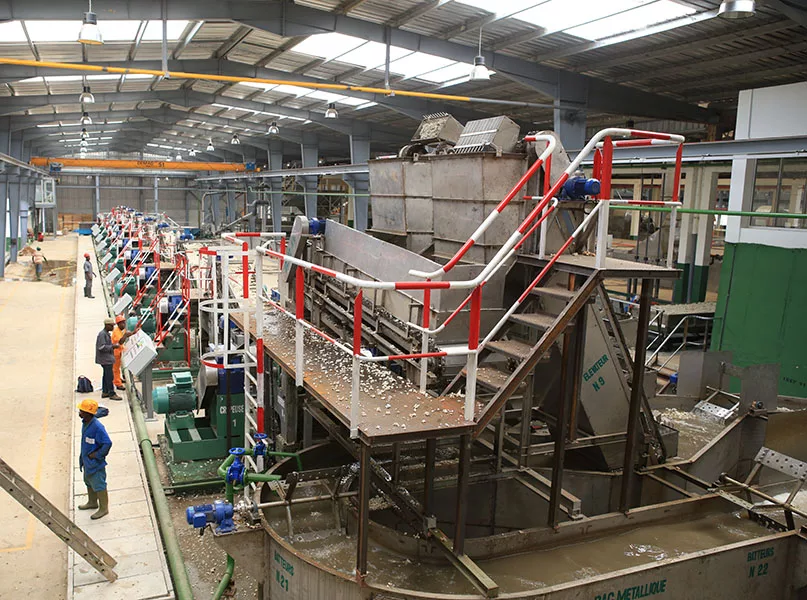
INNOVATIVE REPLANATION TECHNIQUES
By optimising its replantation process through various means, SIPH seeks to preserve its soil integrity and cultivate a deforestation-free supply chain. This long-term project includes several components, such as preserving rubber tree plantations by prohibiting burning through its zero-burn policy, which has been applied for almost a decade.
“Banning burning in line with our environmental commitments is a tried and tested solution which, when fully applied, has shown positive results after a number of years,” Genot details.
The company also seeks to limit disturbance of the soil structure at replantation stage by implementing trials to fell old rubber trees with alternative types of heavy equipment, using excavators instead of bulldozers, for example.
The use of leguminous cover crops to protect and enrich soil in the early stages of rubber trees’ growth is also being trialled to increase natural nitrogen fixation, produce organic matter, and reduce the cost of tree maintenance. So far, some difficulties have arisen in terms of application, whilst at the later stages of tree growth, only plants that thrive in the shade can be used.
Meanwhile, an agroecological approach to soil correction and chemical balance is currently being considered, alongside agroforestry that could contribute to developing food security.
“As each of these approaches is currently being tested on industrial plantations, the challenge of adapting these techniques to smallholder plantations and making it affordable for them will have to be taken into account,” he sums up.
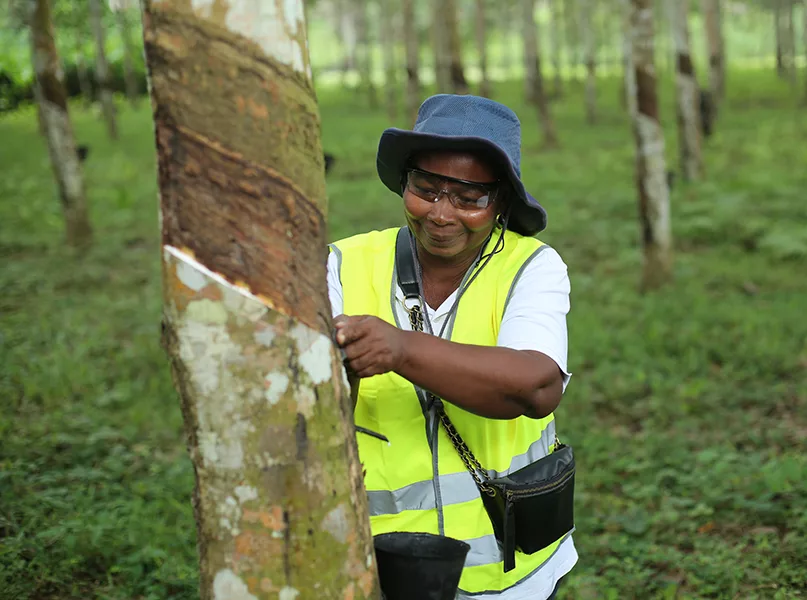
PROGRESSIVE PROJECTS
Alongside the progress it has made towards EUDR, GPSNR, CSRD, and optimising its replantation processes, SIPH is making great strides in its recent projects.
In pursuit of meeting its target to acquire 10,000 ha of land each year, the company has already obtained several assets, each of which must meet stringent eligibility criterion.
“To conform to our free, prior, and informed consent (FPIC) and non-deforestation commitments, such lands follow strict rules,” Genot elaborates.
“Managing plantations is all about improving our proximity to smallholders and leveraging SICOM prices,” he adds.
As the world continues to seek ways to reduce its greenhouse gas (GHG) footprint, SIPH has plans in place to follow suit by decarbonising its energy consumption at the factory level. Several methods to achieve this are being considered, the most feasible being solar power.
“We are also considering acquiring decarbonised energy from the grid, although the market does not seem ready yet, whilst biogas could be an option once we’ve identified suitable partners.”
The company also has the exciting opportunity to participate in a project which will see it protect a reserve of over 2,000 ha of high conservation value (HCV) and high carbon stock value (HCS) trees in Sarbo, Liberia.
SIPH’s shareholders have agreed to fund the project, and as it develops, the company seeks to collaborate with interested parties to increase the size of the project.
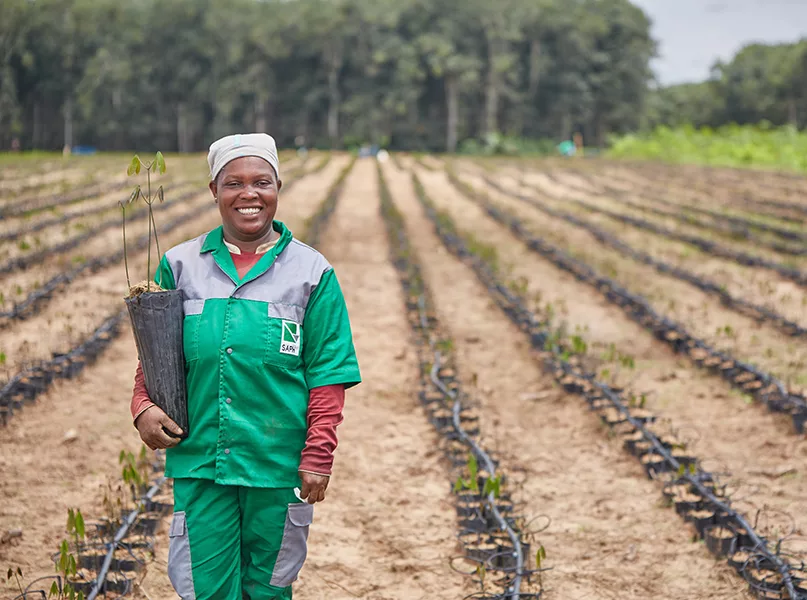
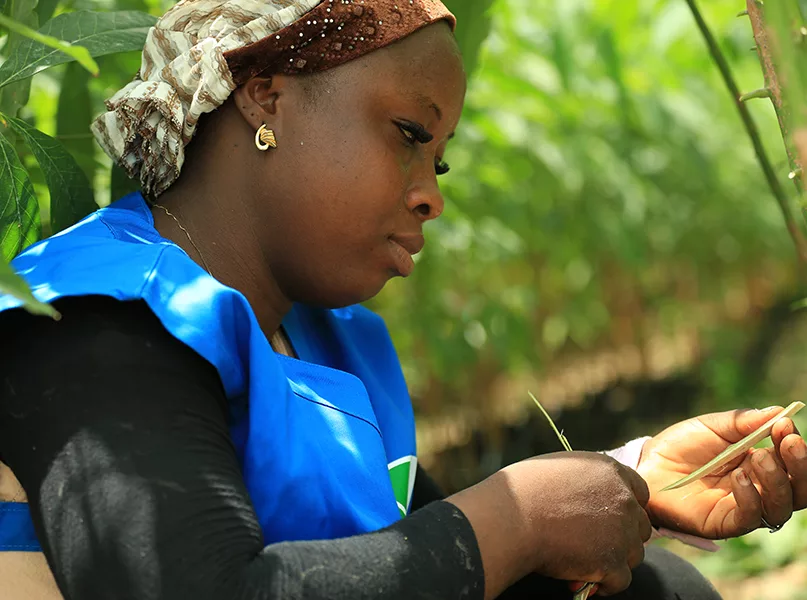
SUSTAINABLE TO THE CORE
Going forward, SIPH continues to seek expansion, sustainability, and innovation.
For example, it has recently proposed an extension to its factory in the western part of Côte d’Ivoire to increase capacity.
Although the project is yet to begin, it is progressing well and anticipates final go-ahead from its shareholders imminently, with the first bale production expected in Q3 2026.
“Our focus for this project will be on developing a new technology that could be extended to other factories to increase production whilst maintaining our high standards,” Genot discloses.
On this note, the company is also optimising its industrial practices elsewhere to accommodate the recent boom in African rubber production, most evident in Côte d’Ivoire and Ghana.
“Factories are now much larger than they once were and need to operate in a more industrial manner,” he notes.
Meanwhile, by continuing to involve itself in initiatives such as replantation projects and implementing renewable energy across its plants, SIPH cultivates its ongoing holistic approach to sustainability.
“We seek to remain a proven and profitable leader in the African sustainable rubber market, reduce our GHG footprint, and improve our smallholders’ technical and sustainable practices,” Genot concludes.
